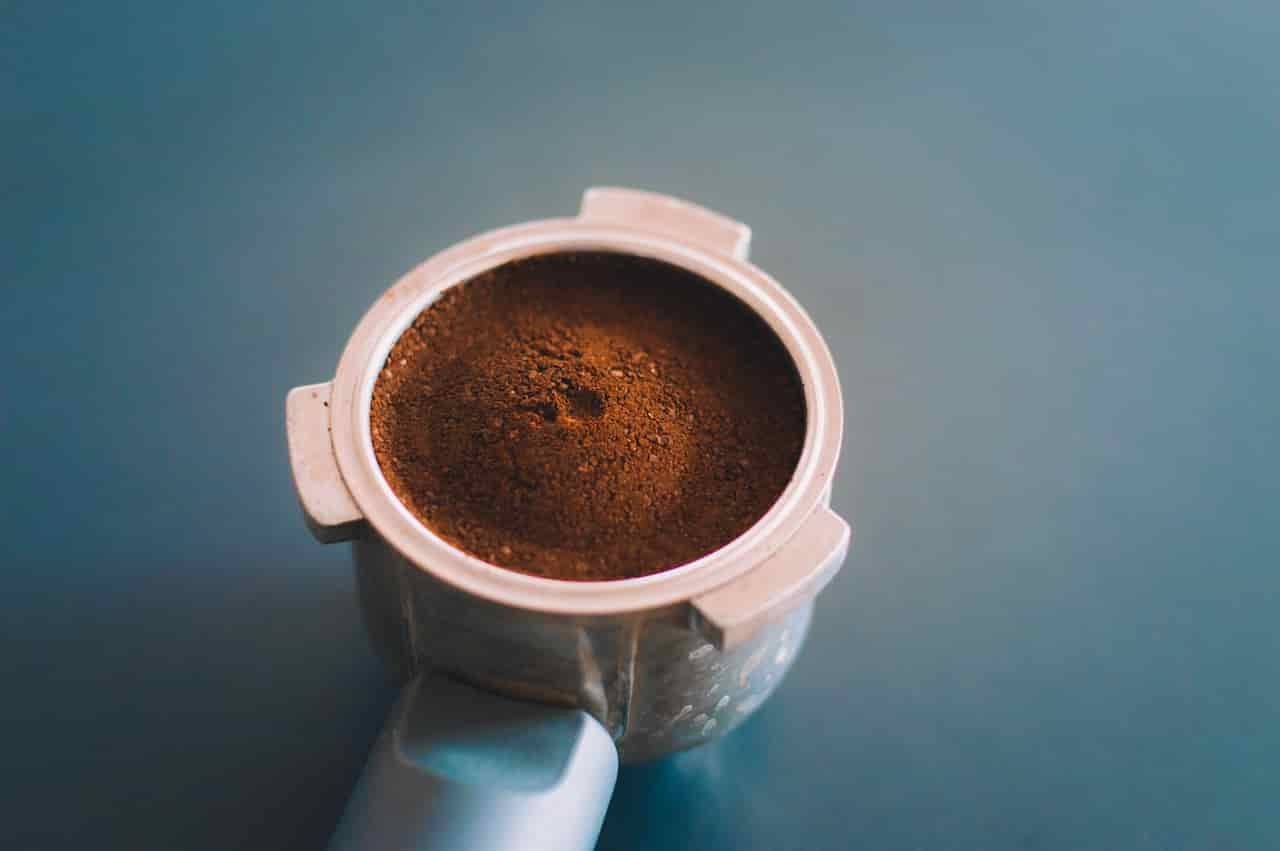If you’re an avid coffee drinker, you might be wondering if you can put those leftover coffee grounds to good use on your lawn.
Coffee grounds are a popular topic in the gardening world, with some claiming they can be a valuable fertilizer for plants.
But what about grass specifically?
In this blog post, we’ll explore the question, “Is coffee grounds good for grass?”
Yes, Using coffee grounds as a fertilizer can benefit grass by providing nutrients, improving soil structure, and increasing microbial activity.
However, it’s important to use them correctly and in moderation to avoid negative effects on soil pH and plant growth.
To start off, we’ll provide an explanation of the topic and its relevance to lawn care. We’ll also delve into a brief history of coffee grounds and their uses.
After all, coffee has been a staple beverage for centuries, and it’s interesting to see how its byproduct has evolved in its uses.
Additionally, we’ll discuss the importance of maintaining a healthy lawn, and how using coffee grounds could potentially benefit it.
So, let’s dive in and discover the truth behind this gardening trend.

Composition of Coffee Grounds
After introducing the topic, it’s important to understand the composition of coffee grounds and why they may be beneficial for grass.
Coffee grounds are made up of a variety of nutrients and chemicals that can help improve the health of plants.
For example, coffee grounds are rich in nitrogen, which is a vital nutrient for grass growth.
They also contain other important minerals, such as phosphorus and potassium, as well as smaller amounts of trace minerals like calcium and magnesium.
In addition to their nutrient content, coffee grounds also have a slightly acidic pH level, which can help balance the pH of soil that is too alkaline.
This can be particularly beneficial for certain types of grass that prefer a more acidic soil.
Using Coffee Grounds as Fertilizer
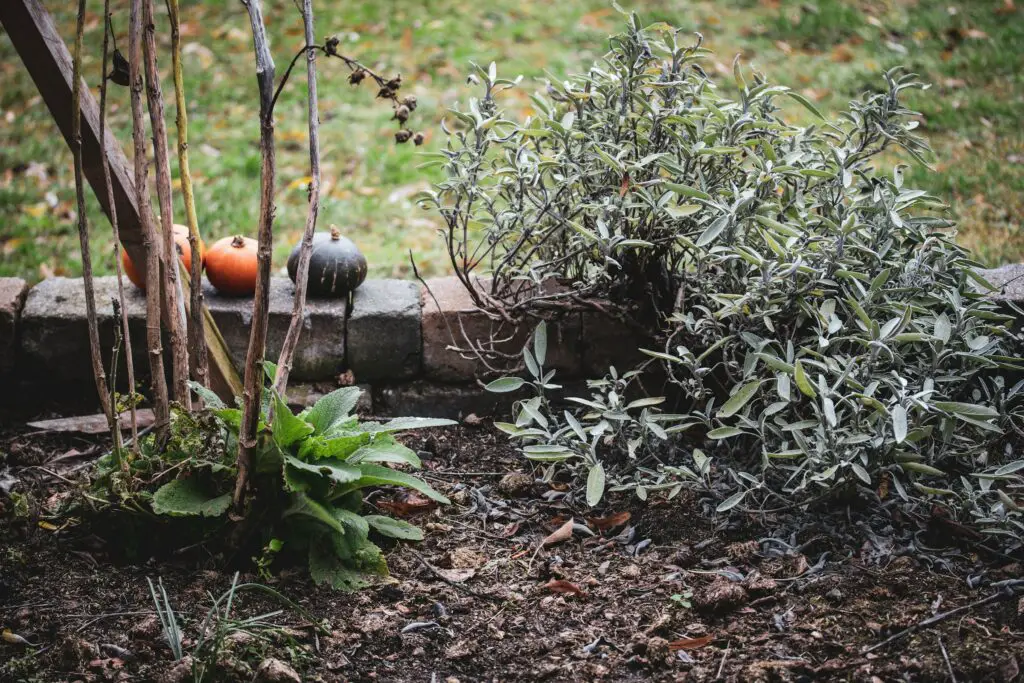
Now that we understand the potential benefits of using coffee grounds as a fertilizer for grass, it’s important to discuss how to properly apply them.
When using coffee grounds as a fertilizer, it’s important to follow certain dos and don’ts to avoid damaging your lawn or plants.
For example, it’s recommended to mix coffee grounds with other organic matter, such as leaves or grass clippings, before applying them to your lawn.
This can help prevent the coffee grounds from clumping together and creating a barrier that blocks water and nutrients from reaching the roots.
Additionally, it’s important to avoid applying too much coffee grounds, as this can lead to nitrogen burn and other issues.
Another consideration is the type of grass you have, as some types may be more sensitive to coffee grounds than others.
There are also some risks associated with using coffee grounds as a fertilizer, such as the potential for mold growth or attracting pests.
Therefore, it’s important to take these risks and considerations into account before using coffee grounds as a fertilizer for your grass.
Research on Coffee Grounds and Grass
To get a better understanding of the effects of coffee grounds on grass, it’s helpful to look at the research that has been conducted on the topic.
While there have been several studies exploring the effects of coffee grounds on plant growth, the results have been somewhat mixed when it comes to using coffee grounds as a fertilizer for grass specifically.
Some studies have shown that coffee grounds can have a positive effect on grass growth and health, while others have found no significant difference compared to other types of fertilizer.
There are also contrasting viewpoints among experts, with some recommending the use of coffee grounds for grass and others advising against it.
It’s important to consider these conflicting results when deciding whether or not to use coffee grounds as a fertilizer for your lawn.
Additionally, there may be other factors that can affect the outcomes of these studies, such as the type of grass, soil conditions, and climate.
Best Practices for Lawn Care
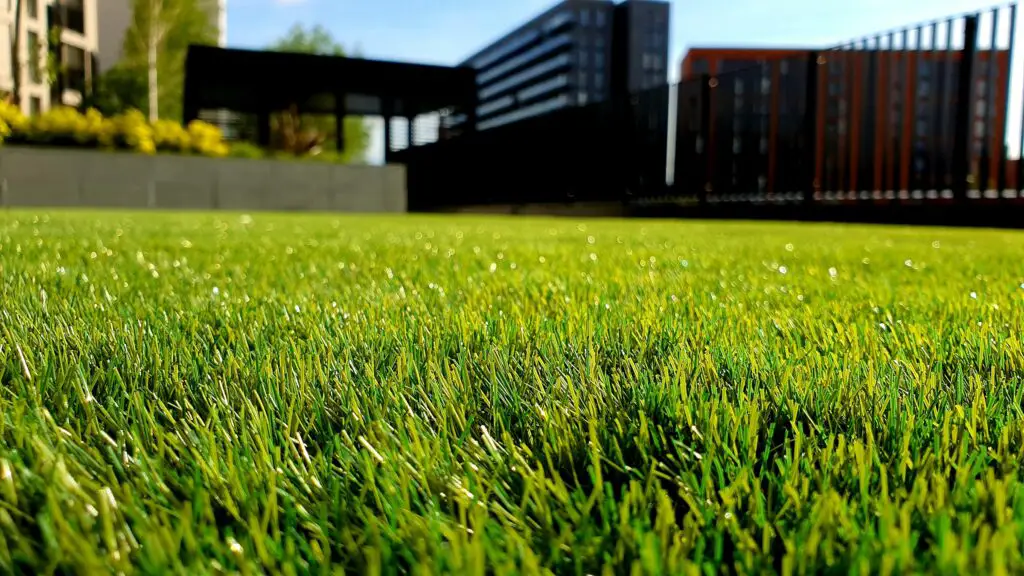
While coffee grounds may have some potential benefits for grass, other best practices for lawn care can help maintain a healthy and vibrant lawn.
Integrated pest management (IPM) is one such practice, which involves using a combination of techniques to manage pests and prevent damage to your lawn.
This can include cultural methods, such as maintaining proper mowing height and watering practices, as well as biological and chemical controls as needed.
Additionally, regularly testing and analyzing your soil can help identify any nutrient deficiencies or imbalances that may be impacting your lawn’s health.
This can help you make informed decisions about fertilization and other lawn care practices.
Other methods for maintaining a healthy lawn include proper watering and mowing techniques, overseeding, and aerating.
Composting with Coffee Grounds
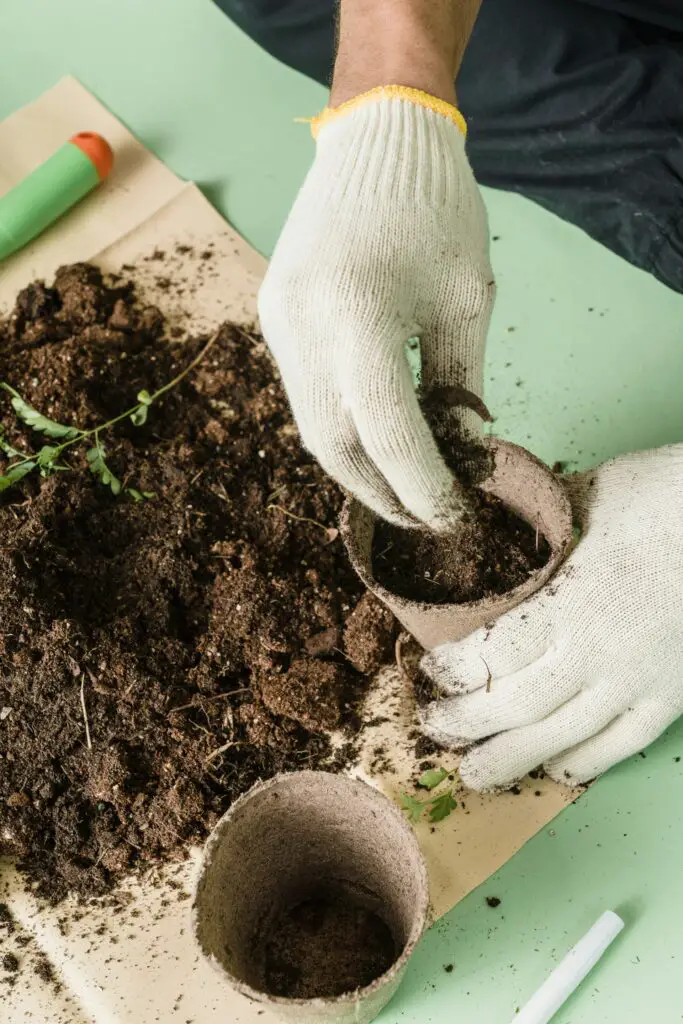
If you’re still unsure about using coffee grounds as a fertilizer for your grass, or if you’re looking for an alternative use for your coffee grounds, composting may be a great option.
Composting is the process of breaking down organic matter, such as food waste and yard clippings, into nutrient-rich soil.
Composting with coffee grounds can have many benefits, such as improving soil structure, increasing water retention, and promoting healthy microbial activity.
To compost coffee grounds, simply mix them with other organic matter, such as leaves and grass clippings, and allow the mixture to decompose over time.
Once the compost is ready, it can be used as a natural and nutrient-rich fertilizer for your lawn and garden.
Alternative Uses for Coffee Grounds
Even if you decide not to use coffee grounds as a fertilizer or compost, there are many other ways to repurpose them at home.
One popular use for coffee grounds is as an exfoliant for the skin, due to their slightly abrasive texture.
They can also be used as a natural dye for fabrics and paper, or as an odor neutralizer in the refrigerator or pantry.
Some people even use coffee grounds as a natural insect repellent or to help keep cats out of their gardens.
To repurpose coffee grounds at home, you can mix them with coconut oil or sugar to make a homemade scrub, or use them to create a natural dye for clothes or crafts.
There are also many creative ways to use coffee grounds in gardening, such as creating a coffee ground “tea” to use as a natural fertilizer or adding them to a vermicomposting bin to create nutrient-rich worm castings.
Common Misconceptions
As with any gardening or home remedy, there are several misconceptions and myths surrounding the use of coffee grounds for grass.
One common myth is that coffee grounds are highly acidic and can harm grass when in reality they are only slightly acidic and can help balance the pH of soil over time.
Additionally, some people believe that coffee grounds can attract pests or cause mold, but this is not typically an issue if they are applied correctly and in moderation.
It’s important to dispel these myths and provide accurate information about the benefits and potential risks of using coffee grounds for grass.
One common mistake to avoid is applying too much coffee grounds at once, which can lead to nitrogen burn and other issues.
It’s also important to mix coffee grounds with other organic matter and to avoid using them as the sole source of fertilizer for your lawn.
Environmental Impact
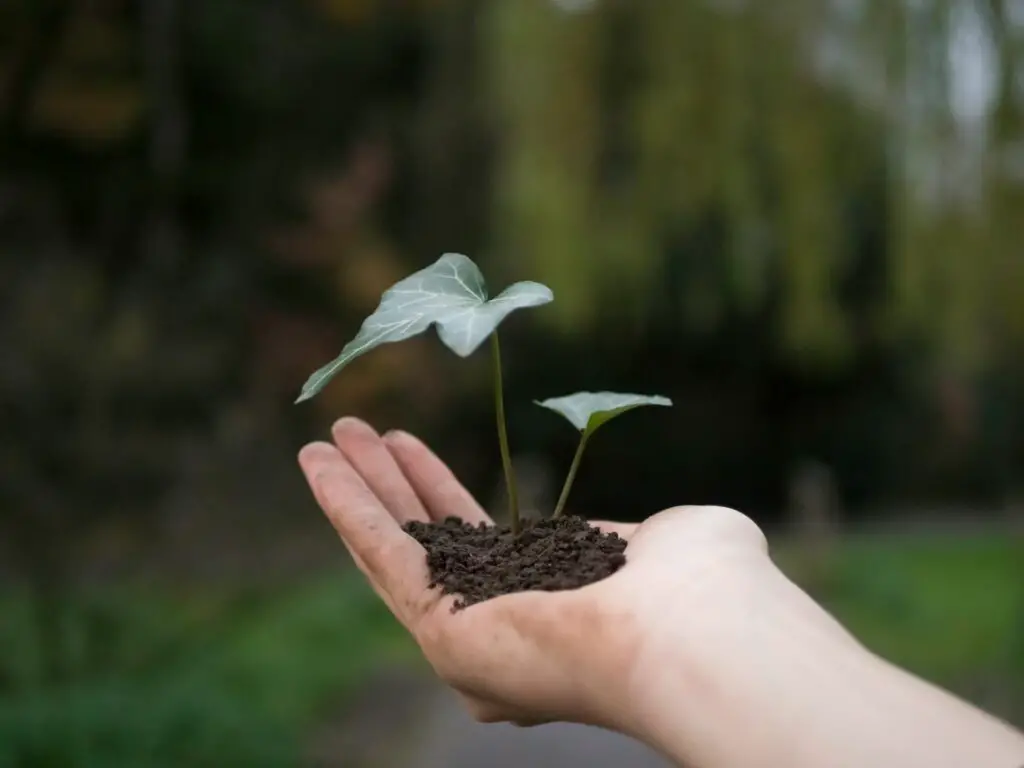
While using coffee grounds for grass can have many benefits for your lawn, it’s also important to consider the environmental impact of this practice.
Coffee production is often associated with deforestation, soil degradation, and water pollution, so it’s important to support sustainable coffee production practices whenever possible.
Additionally, using coffee grounds for grass can lead to excess nutrients in the soil and potential runoff into nearby waterways, which can harm aquatic ecosystems.
However, when used in moderation and in combination with other organic matter, coffee grounds can also help reduce waste and support healthy soil ecosystems.
To minimize the environmental impact of using coffee grounds for grass, it’s important to source coffee from sustainable producers and to compost any excess coffee grounds rather than disposing of them in the trash.
Additionally, it’s important to follow best practices for lawn care, such as using integrated pest management techniques and avoiding over-fertilization, to support overall environmental health.
Case Studies
Case studies can provide valuable insight into the real-life impact of using coffee grounds for grass.
Success stories can showcase the potential benefits of using coffee grounds as a natural fertilizer, such as improved soil health and stronger grass growth.
For example, a homeowner in a dry climate may find that using coffee grounds helps retain moisture in the soil and reduce water usage for their lawn.
Additionally, case studies can highlight specific factors that may affect the effectiveness of coffee grounds for grass, such as soil type, grass species, and climate.
Real-life examples of coffee grounds’ impact on lawns can also help dispel common myths and provide practical advice for using coffee grounds effectively.
Conclusion
In conclusion, using coffee grounds for grass can be a simple and effective way to support a healthy lawn while reducing waste.
Coffee grounds contain valuable nutrients and organic matter that can improve soil health and support strong grass growth.
However, it’s important to follow best practices for using coffee grounds as a fertilizer, such as avoiding over-application and mixing with other organic matter.
Additionally, it’s important to consider the environmental impact of using coffee grounds and to support sustainable coffee production practices whenever possible.
While research on coffee grounds and grass is still ongoing, case studies suggest that coffee grounds can be a valuable addition to a lawn care routine when used properly.
In summary, using coffee grounds for grass can be a sustainable and effective way to support a healthy lawn, but it’s important to approach this practice with care and consideration for both your lawn and the environment.
For those interested in further exploring the potential benefits of using coffee grounds for grass, further research and experimentation are encouraged.
FAQ’s
Q: What does coffee grounds do for your lawn?
A: Coffee grounds can improve soil structure, add organic matter, and provide nutrients that support grass growth.
The nitrogen, phosphorus, and potassium in coffee grounds make them a good natural fertilizer for grass.
Q: How often to use coffee grounds as fertilizer?
A: Coffee grounds can be used as a fertilizer once every few weeks during the growing season.
However, it’s important not to over-apply coffee grounds, as this can lead to excess nitrogen in the soil and potential harm to the grass.
Q: Do coffee grounds keep bugs away?
A: Coffee grounds have not been proven to repel insects or pests.
While some people use coffee grounds as a natural pest control method, the effectiveness of this practice is not widely accepted.
Q: Is Epsom salts good for grass?
A: Epsom salts can be beneficial for grass, as they contain magnesium and sulfur that support growth and development.
However, it’s important to use Epsom salts sparingly and in conjunction with other fertilizers, as over-application can lead to excess nutrients and potential harm to the grass.
Q: What are the disadvantages of coffee grounds as fertilizer?
A: Over-application of coffee grounds can lead to excess nitrogen in the soil, which can harm grass and other plants.
Coffee grounds can also be acidic, which can be harmful to certain plants and soil types if not used in moderation.
Q: What plants don’t like coffee grounds?
A: Plants that prefer alkaline soil, such as some types of ferns and succulents, may not thrive in soil amended with coffee grounds due to their acidity.
Additionally, some plants may be sensitive to the caffeine and other compounds found in coffee.
Q: Are eggshells good for grass?
A: Eggshells can be a good source of calcium for grass and other plants.
Crushed eggshells can be added to soil or compost to provide this nutrient.
Q: How do you add coffee grounds to soil?
A: Coffee grounds can be added directly to soil, but it’s important to mix them with other organic matter and avoid over-application.
Coffee grounds can also be added to compost bins or worm bins to break down before being added to the soil.
Q: Do coffee grounds repel mosquitoes?
A: There is no scientific evidence to support the claim that coffee grounds repel mosquitoes.
While some people use coffee grounds as a natural insect repellent, the effectiveness of this practice is not well-supported.
Q: Are coffee grounds good for killing weeds?
A: Coffee grounds have not been proven to be an effective weed killer.
While some people use coffee grounds as a natural herbicide, the effectiveness of this practice is not widely accepted.
Q: Do coffee grounds repel dogs?
A: While some dogs may be deterred by the scent of coffee, there is no scientific evidence to support the claim that coffee grounds repel dogs.
Q: Do all plants benefit from coffee grounds?
A: Not all plants benefit from coffee grounds.
While many plants can benefit from the nutrients and organic matter provided by coffee grounds, some plants may be sensitive to the acidity and caffeine content of coffee.
It’s important to research the specific needs of each plant before using coffee grounds as a soil amendment or fertilizer.


